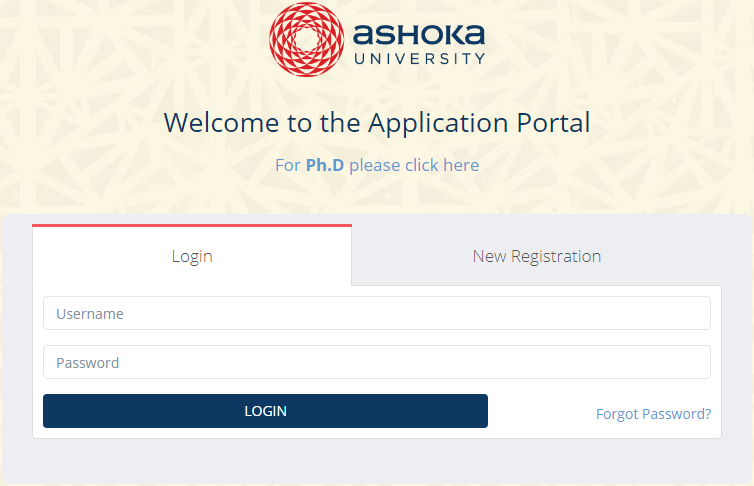NCERT Solutions for Class 10 English First Flight Chapter 6 The Hundred Dresses – II are part of NCERT Solutions for Class 10 English. Here we have given NCERT Solutions for Class 10 English First Flight Chapter 6 The Hundred Dresses – II.
| Board | CBSE |
| Textbook | NCERT |
| Class | Class 10 |
| Subject | English First Flight |
| Chapter | Chapter 6 |
| Chapter Name | The Hundred Dresses – II |
| Category | NCERT Solutions |
NCERT Solutions for Class 10 English First Flight Chapter 6 The Hundred Dresses – II
TEXTUAL EXERCISES
ORAL COMPREHENSION CHECK
(Page 74)
Question 1.
What did Mr. Petronski’s letter say ?
Answer:
Petronski’s letter said that Wanda won’t come to school any more. They were moving to a big city. There would be no more fun on names. There were plenty of funny names in the city.
Question 2.
Is Miss Mason angry with the class, or is she unhappy and upset ?
Answer:
Miss Mason is unhappy and upset with the class. She calls it unfortunate. It all happened in utter thoughtlessness. She asks the class to think. She also asks not to hurt anyone’s feelings because of a longer name.
Question 3.
How does Maddie feel after listening to the note from Wanda’s father ? (Imp.)
Answer:
Maddie feels greatly hurt. She has a very sick feeling in the bottom of her stomach. She looks silently. She has a feeling to go and tell Wanda that they hadn’t meant to hurt her feelings.
Question 4.
What does Maddie want to do ?
Answer:
Maddie wants to go to Wanda at once. She would tell her that they hadn’t meant to hurt her feelings. She thinks to tell Wanda that they thought her to be smart. Also her dresses were beautiful.
ORAL COMPREHENSION CHECK
(Page 76)
Question 1.
What excuses does Peggy think up for her behaviour ? Why ?
Answer:
Peggy thinks up that she didn’t call her a foreigner. She also did not make fun of her name. She thought that Wanda was too dumb. She never thought that she could know that they were mocking at her.
Question 2.
What are Maddie’s thoughts as they go to Boggins Heights ?
Answer:
Maddie hoped that they would find Wanda. She wanted to tell her that they were sorry. The whole school thought that she was just wonderful. All would be nice to her. She should not move away from there. She and Peggy would fight anybody who was not nice to her.
Question 3.
Why does Wanda’s house remind Maddie of Wanda’s blue dress ?
Answer:
Wanda’s house reminds Maddie of Wanda’s blue dress because both look similar. When Maddie goes there she finds the house shabby but clean. So was Wanda’s faded blue cotton dress.
Question 4.
What does Maddie think hard about ? What important decision does she come to ? (V. Imp.)
Answer:
She decided not to stand by any more and say nothing again. She would speak up if she heard anybody speaking badly or treating others unkindly. She wouldn’t mind losing Peggy’s friendship for that. She decided never to make anybody unhappy.
ORAL COMPREHENSION CHECK
(Page 79)
Question 1.
What did the girls write to Wanda ? (Imp.)
Answer:
They wrote about Wanda’s pretty drawings. They asked her if she liked where she was living and if she liked her new teacher. They regretted over what had happened. It was a friendly letter.
Question 2.
Did they get a reply ? Who was more anxious for a reply, Peggy or Maddie ? How do you know ?
Answer:
They did not get a reply to their letter. Maddie was more anxious for a reply. It is clear in the sense that she couldn’t sleep properly. She burst out crying ‘stop’ as per her decision. It was that she would not allow anybody to hurt others or make fun of them.
Question 3.
How did the girls know that Wanda liked them even though they had teased her ?
Answer:
The girls knew this fact from Wanda’s letter to Miss Mason. In that letter she gave her drawings to Peggy and Maddie. She also wrote that she missed her teacher. She wished all a merry Christmas.
THINKING ABOUT THE TEXT
(Page 79)
Question 1.
Why do you think Wanda’s family moved to a different city ? Do you think life there was going to be different for their family ?
Answer:
I think that Wanda’s family moved to a different city due to racial prejudice. Life there in a big city was going to be different. It was because people over there were not hard and harsh in their racial prejudice. They were not so in petty things like long and funny names.
Question 2.
Maddie thought her silence was as bad as Peggy’s teasing. Was she right ?
Answer:
Yes, Maddie thought that her silence was as bad as Peggy’s teasing. It was because it amounted to supporting Peggy. She was right in thinking so.
Question 3.
Peggy says, “I never thought she had the sense to know we were making fun of her anyway. I thought she was too dumb. And gee, look how she can draw!” What led Peggy to believe that Wanda was dumb ? Did she change her opinion later ?
Answer:
Wanda never reacted to Peggy’s teasing in an arrogant way. She said everything silently and seriously. She had more understanding than that of Peggy or Maddie. But Wanda was never dumb. Peggy changed her opinion later. It is clear in her regretting later and writing a kind of apology.
Question 4.
What important decision did Maddie make ? Why did she have to think hard to do so ?
Answer:
Maddie decided that in future she would not stand silently when someone was mocking (at) others or making fun of them. She would speak up even if that meant breaking Peggy’s friendship. She decided that she would not make anybody unhappy.
Question 5.
Why do you think Wanda gave Maddie and Peggy the drawings of the dresses ? Why are they surprised ?
Answer:
Wanda gave Maddie and Peggy the drawings of the dresses. She did so in reply to their making fun for her dresses and her poverty. She showed through this that she was above petty things like dresses etc. Human values and qualities of mind were more important than dresses etc.
They are surprised because the drawings had their individual faces drawn in them.
Question 6.
Do you think Wanda really thought the girls were teasing her ? Why or Why not ?
Answer:
Yes, Wanda really thought so because she was a highly intelligent and sensitive girl. She had more understanding and maturity of mind than them. This she showed in her drawing and letter by sketching them and forgiving them.
THINKING ABOUT LANGUAGE
I. Here are thirty adjectives describing human qualities. Discuss them with your partner and put them in the two word webs (given below) according to whether you think they show positive or negative qualities. You can consult a dictionary if you are not sure of the meanings of some of the words. You may also add to the list the positive or negative ‘pair’ of a given word.

Answer:
Meant for class level. These adjectives can be classified as given below :


II. What adjectives can we use to describe Peggy, Wanda and Maddie ? You can choose adjectives from the list above. You can also add some of your own.
- Peggy __________
- Wanda __________
- Maddie __________
Answer:
- Peggy : sarcastic, arrogant, cruel, haughty, proud, zealous, thoughtless, vain, unforgiving.
- Wanda : kind, courteous, intrepid, sensitive, compassionate, introverted, contented, friendly, generous, talented, lonely, determined, creative, complacent.
- Maddie : insipid, timid, placid, stolid.
III. 1. Find the sentences in the story with the following phrasal verbs.
![]()
2. Look up these phrasal verbs in a dictionary to find out if they can be used in some other way. (Look at the entries for line, think, take and stand in the dictionary.) Find out what other prepositions can go with these verbs. What does each of these phrasal verbs mean ?
3. Use at least five such phrasal verbs in sentences of your own.
Answer:
1. Class-room activity.
2. Yes, they can be used in some other way also. The other prepositions that can go with them are given below :


3. Sentence formation :
Line with — This road is lined with big trees.
Think about — She thought about her dead child and started weeping.
Think over — She thought over the matter again and decided to leave.
Take over — Mr. Arun took over as the President of this company.
Stand down — We saw him stand down the witness box in the court.
IV. Colours are used to describe feelings, moods and emotions. Match the following ‘colour expressions’ with a suggested paraphrase.

Answer:


We hope the NCERT Solutions for Class 10 English First Flight Chapter 6 The Hundred Dresses – II help you. If you have any query regarding NCERT Solutions for Class 10 English First Flight Chapter 6 The Hundred Dresses – II, drop a comment below and we will get back to you at the earliest.
NCERT Solutions for Class 10 English
- A Letter to God Question Answer
- Nelson Mandela: Long Walk to Freedom Question Answer
- Two Stories about Flying Question Answer
- From the Diary of Anne Frank Question Answer
- The Hundred Dresses – I Question Answer
- The Hundred Dresses – II Question Answer
- Glimpses of India Question Answer
- Mijbil the Otter Question Answer
- Madam Rides the Bus Question Answer
- The Sermon at Benares Question Answer
- The Proposal Question Answer

